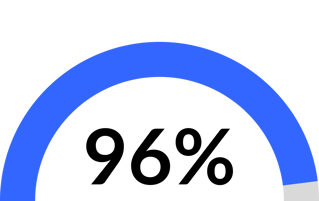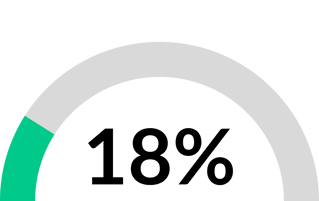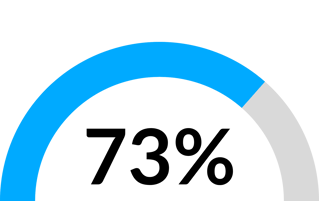Case Study
Fostering Sustainable Excellence: URMC’s Journey to Empowered Leadership and Well- being with Valor Performance


96% of participants report making tangible progress in achieving their goals in areas such as building confidence, adaptability, communication and improving time and energy management

URMC participants saw an overall 18% total reduction in stress levels after working with Valor

73% of participants experienced an improvement in their ability to influence their team toward its organizational goals
The Challenge
The University of Rochester Medical Center (URMC) is a premier academic medical institution in the United States, and serves as the focal point for the University of Rochester's endeavors in health research, education, and patient care. URMC partners with Valor Performance to build leadership capacity, retain talent, and mitigate burnout.
URMC faced several challenges that prompted them to seek innovative approaches to faculty and leadership development:
Shortage of faculty and staff
Workplace Burnout and Sustainability
Desire for Development
The Solution
URMC's dedication to nurturing the growth of their staff took a significant step forward through their partnership with Valor Performance. At its core, Valor's performance coaching program aimed to empower URMC's leaders even amidst a challenging healthcare environment. Through a series of one-on-one professional virtual coaching sessions, supported by a guided, self-directed learning platform, URMC leaders gained invaluable self-awareness, developed agency, and honed communication and leadership skills, equipping them to set an example and tone for their multidisciplinary teams.
What set Valor apart from URMC’s other internal resources was its individualized, confidential approach, ensuring that each leader's unique needs were addressed in a safe and private environment. Moreover, Valor Performance's coaching program seamlessly integrated with URMC's internal resources, such as mentoring programs and workshops, creating a holistic and comprehensive development experience for the organization's dedicated staff.
"I have a newly honed tool set of skills to call upon in my various roles and utilize those tools with agility and flexibility."

Dr. Heather Busick | URMC
The Results
URMC's investment in Valor Performance coaching yielded impressive results that surpassed initial expectations in various critical areas, validating its substantial impact on leadership development, stress reduction, and overall organizational performance.
Strong Demand and Active Engagement
Valor Performance witnessed an overwhelming demand, with twice as many faculty members expressing interest in the program compared to the administrators' initial predictions. In addition, an impressive 92% of URMC’s participants were actively engaged in the Valor Performance coaching experience. This remarkable level of interest and participation underscores the value that URMC leaders placed on the coaching program and highlights the organization's commitment to investing in leadership development. Dr. Janine Shapiro, Associate Dean for Faculty Development, Medical Director for Continuing Medical Education, and Professor of Anesthesiology and Perioperative Medicine elaborated:
"Having a way to provide [support for faculty] in a way that is flexible, provides the autonomy that faculty are looking for and the flexibility during this complex time in academic medicine...I mean, [the participants] voted with their feet. When [Valor] was offered, they jumped at the opportunity. So the faculty decided, and they showed us what they value."
Goal Progress
Another significant achievement was the remarkable progress made by participants toward their development goals. An overwhelming 97% of participants reported making tangible progress in achieving their goals in areas such as building confidence, adaptability, communication and improving time and energy management.This result emphasizes the program's ability to drive meaningful, measurable improvements in leadership capabilities and performance that will allow participants to succeed and flourish in academic medicine for the duration of their careers.
Leadership Effectiveness
An astonishing 96% of URMC participants stated that their involvement with Valor had significantly improved their performance and effectiveness at work. Across Valor, this improvement in effectiveness is validated by colleagues, managers and peers, as evidenced by 360 feedback collected through Valor Viewpoints. On average, 73% of participants experience an improvement in their ability to influence their team toward its organizational goals, with an impressive 27.9% increase from baseline data collected, showcasing the broader positive ripple effect within their teams and organizations at large. In addition, 75% of participants experience an improvement in their ability to ask for and use feedback to grow and achieve their goals, and colleagues observed a 10% increase from baseline in Valor participants' ability to communicate their intentions effectively to others. All of these notable results reinforce the fact that Valor Performance coaching not only enhances individual effectiveness but also strengthens team dynamics and organizational culture.
The 1:1 coaching has made a significant impact, identifying areas where I have been stuck, and providing opportunities for reflection, insight, and concrete steps to becoming a stronger leader. I’m grateful for the opportunity to engage in this work. -Dr. Valerie J. Lang, Professor of Medicine, Senior Associate Division Chief & Director of Faculty Development, Hospital Medicine Division, Associate Director of Meliora in Medicine
Stress and Burnout Reduction
Utilizing the Perceived Stress Scale (PSS) assessment, a commonly-used psychological survey, URMC observed a noteworthy reduction in perceptions of stress levels among participants. After just 2 months of Valor coaching, participants experienced an approximate 6% decrease in their PSS scores. Incredibly, continued coaching for an additional 3 months (5 months in total) resulted in a total reduction of 18% in stress levels. This outcome aligns with research from Mayo Clinic on the impact of professional coaching to mitigate emotional exhaustion contributing to burnout with a 17% decrease in stress through virtual coaching (Dyrbye). This highlights the significant and sustained positive impact of coaching on stress management and burnout reduction by not only significantly lowering stress levels, as demonstrated by the substantial decrease in PSS scores, but also by equipping participants with effective coping strategies and resilience-building techniques to navigate the high-pressure healthcare environment more effectively.
Furthermore, Valor Performance leveraged a modified version of the NASA Task Index focused on cognitive workload, which has been shown to correlate to the risk of burnout in physicians (Harry). Initial data findings reveal that while participants in Valor Performance coaching found their work to be as mentally demanding as before they began Valor coaching, they experienced a substantial 23% increase in their success rates when it comes to accomplishing their job tasks and a 16% decrease in feeling insecure, discouraged, stressed and annoyed compared to before Valor.
Nurturing Faculty
Program administrators seized the opportunity to address the concerns of over-extended faculty and staff effectively. By equipping them with the tools and strategies necessary to take control of their own development, build strong boundaries, be confident in their abilities, and manage themselves and their energy more efficiently and sustainably, Valor Performance contributed to a more balanced and empowered workforce, while also fostering a culture of self-driven improvement and leadership excellence. Dr. Shapiro explains:
I think clearly, this was an opportunity for us especially during this time where we have the shortage of faculty and staff and workplace burnout was an opportunity for us to show our faculty how we value them and were invested in their professional development.
URMC's investment in Valor Performance has yielded exceptional results, from high demand and engagement to substantial progress in leadership development and stress reduction. The program's ability to empower participants, foster goal achievement, and enhance overall well-being underscores its invaluable contribution to URMC's mission of cultivating strong, resilient, and effective leadership within the organization.
"Embrace this experience on the basis of the way that it encourages future leaders to engage, to prioritize, to use their experiences. The personalization and the flexibility, and the alignment across multiple contemporary workplace cultures and dilemmas…This is the real deal, and it leads to all kinds of productive ripple effects for organizational change."

Dr. Jessica Shand | URMC
The difference with Valor
Valor's coaching stood out due to its tailored and flexible nature. The individualized coaching approach built trust and addressed each participants’ specific needs, leading to meaningful progress, and the blend of live and asynchronous components provided flexibility while keeping participants engaged. Participants found the coaching program both rewarding and effective, resulting in positive impacts on job satisfaction, well-being, and performance.
URMC's success story with Valor Performance coaching serves as an example of how innovative approaches can address challenges and drive positive change. By partnering with Valor, institutions can create a culture of empowerment, self-leadership, and growth that benefits both individuals and the organization as a whole.
"Overall, participating in Valor was a wonderful experience and I will continue to implement what I have learned going forward in my career."

Dr. Alissa Huston | URMC
Key Takeaways
Addressing talent shortages and overwork
Stress reduction and burnout mitigation
Measurable leadership improvement
Empowerment and self driven improvement
Dyrbye, Liselotte. “Professional Coaching and Surgeon Well-being: A Randomized Controlled Trial.” PubMed, 1 April 2023, https://pubmed.ncbi.nlm.nih.gov/36000783/. Accessed 26 September 2023
Harry, Elizabeth. “Physician Task Load and the Risk of Burnout Among US Physicians in a National Survey.” PubMed, 2021, https://pubmed.ncbi.nlm.nih.gov/33168367/. Accessed 26 September 2023.

